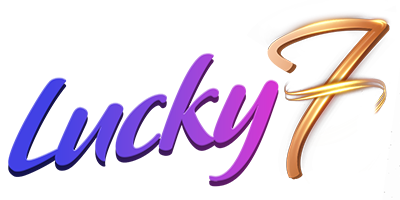Blockchain technology is rapidly transforming various industries, and the gambling sector is no exception. This disruptive innovation has introduced new standards of transparency, security, and efficiency, addressing many of the challenges traditionally associated with gambling. From provably fair gaming to decentralized casinos, blockchain is revolutionizing the way people gamble online.
Understanding Blockchain Technology
At its core, blockchain is a decentralized, distributed ledger that records transactions across multiple computers. It ensures that data is secure, immutable, and transparent. In the context of gambling, this means:
-
Transparency: All bets, payouts, and game results are recorded on the blockchain, allowing anyone to verify them.
-
Security: Blockchain’s cryptographic algorithms protect user data and transactions from tampering or fraud.
-
Decentralization: Transactions occur directly between parties without intermediaries, reducing costs and enhancing trust.
Applications of Blockchain in Gambling
1. Provably Fair Gaming
One of the most significant advancements blockchain brings to gambling is provably fair gaming. Traditional gambling platforms often face skepticism regarding the fairness of their games. Blockchain addresses this by allowing players to verify the randomness and integrity of game outcomes through cryptographic proofs. Smart contracts automate the process, ensuring unbiased results.
2. Decentralized Casinos
Blockchain enables the creation of decentralized casinos that operate without central authorities. These platforms rely on smart contracts to manage bets, payouts, and other operations. Decentralization eliminates the need for intermediaries, reducing fees and increasing player trust.
3. Cryptocurrency Payments
Blockchain facilitates seamless cryptocurrency transactions, offering several advantages over traditional payment methods:
-
Faster deposits and withdrawals.
-
Lower transaction fees.
-
Enhanced privacy for users.
Popular cryptocurrencies like Bitcoin, Ethereum, and stablecoins are commonly accepted on blockchain-based gambling platforms.
4. Global Accessibility
Blockchain removes geographical and financial barriers, enabling players from around the world to participate in gambling activities. By bypassing traditional banking systems, blockchain ensures accessibility even in regions with restricted gambling regulations.
5. Secure and Transparent Transactions
All transactions on blockchain platforms are recorded on an immutable ledger. This level of transparency ensures that players and operators can audit the platform’s operations at any time, fostering trust.
6. Tokenized Rewards
Blockchain casinos often issue their own tokens as rewards for player engagement. These tokens can be used for betting, traded on cryptocurrency exchanges, or redeemed for other benefits, creating additional value for players.
Benefits of Blockchain in Gambling
-
Enhanced Trust and Fairness Blockchain’s transparency eliminates doubts about the fairness of games and payouts.
-
Cost Efficiency By cutting out intermediaries, blockchain reduces operational costs for gambling platforms, allowing them to offer better odds and bonuses.
-
Faster Transactions Cryptocurrency payments process much faster than traditional methods, ensuring players receive their winnings promptly.
-
Improved Security Blockchain’s cryptographic nature protects against hacking, fraud, and unauthorized access.
-
Anonymity Players can gamble anonymously using cryptocurrency, enhancing privacy and reducing the risk of identity theft.
Challenges of Blockchain in Gambling
Despite its benefits, blockchain adoption in gambling comes with challenges:
-
Regulatory Uncertainty: The legal status of blockchain-based gambling varies across jurisdictions, complicating compliance.
-
Scalability Issues: High transaction volumes can overwhelm blockchains with limited capacity, leading to delays.
-
Volatility of Cryptocurrencies: Price fluctuations can impact the value of deposits and winnings.
-
User Adoption: Many players are unfamiliar with blockchain and cryptocurrencies, creating a barrier to entry.
Real-World Examples
Several platforms have successfully integrated blockchain technology into their gambling operations:
-
FunFair: A decentralized casino platform that uses Ethereum smart contracts to ensure fairness and transparency.
-
Edgeless Casino: Offers provably fair gaming with a 0% house edge.
-
BC.Game: A multi-cryptocurrency gambling platform with a variety of games and provably fair mechanics.
-
CryptoGames: Supports popular cryptocurrencies and features classic casino games like dice and roulette.
Future of Blockchain in Gambling
The future of blockchain in gambling looks promising, with several trends emerging:
-
Integration with the Metaverse: Virtual casinos in blockchain-based metaverse platforms are gaining popularity.
-
AI and Blockchain Synergy: Combining artificial intelligence with blockchain can create personalized and secure gaming experiences.
-
Regulatory Advancements: As governments establish clearer frameworks for blockchain and cryptocurrencies, adoption is likely to accelerate.
-
Decentralized Esports Betting: Blockchain could revolutionize esports gambling by ensuring transparency and fairness.
Conclusion
Blockchain technology is reshaping the gambling industry by addressing long-standing issues like trust, fairness, and security. While challenges remain, its potential benefits far outweigh the drawbacks. As technology matures and adoption increases, blockchain is set to become a cornerstone of the gambling industry, providing players and operators with unparalleled transparency, efficiency, and innovation.




